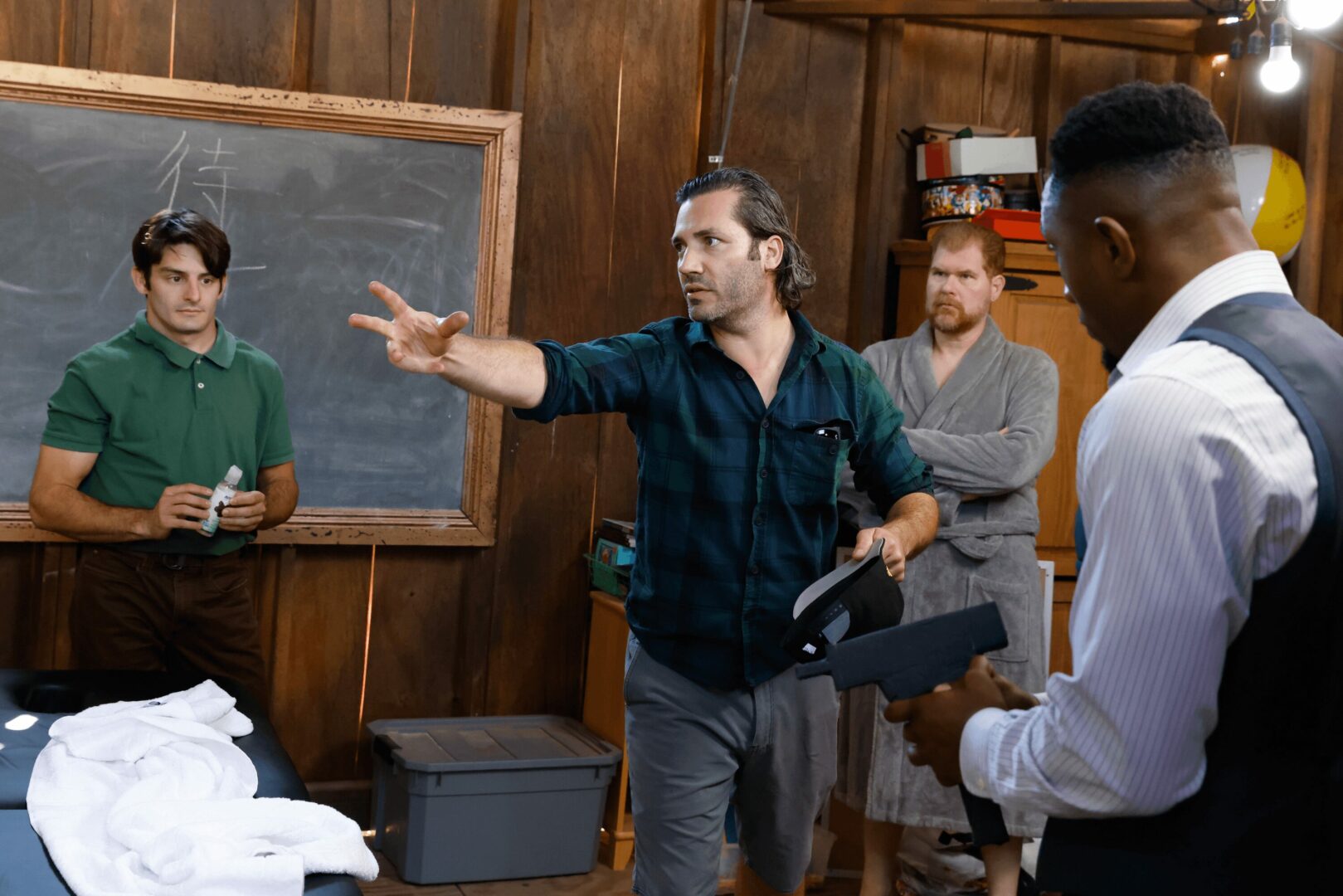We recently connected with Joss Refauvelet and have shared our conversation below.
Joss, appreciate you making time for us and sharing your wisdom with the community. So many of us go through similar pain points throughout our journeys and so hearing about how others overcame obstacles can be helpful. One of those struggles is keeping creativity alive despite all the stresses, challenges and problems we might be dealing with. How do you keep your creativity alive?
It’s pretty simple for me. Sometimes, I even wish I could slow it down. I don’t want to sound arrogant, but I’d like to savor the creative process, especially the final stage—the completion and enjoyment of the final product. However, most of the time, when I’m about 75% done with making a movie, during the editing process, I start thinking about new movies to make.
The same goes for painting on canvas. I like to start three at a time because the drying process is too slow for me, so I jump from one to another.
As for keeping creativity alive, I find inspiration everywhere, often in the most insignificant things. By just observing my surroundings and listening to people talk, whether to each other or to me, my curiosity is piqued. I often ask them odd and personal questions because I want to know more. Whether or not I get an answer, I store the information in my memory.
All my screenplays and scripts are a patchwork of life experiences, stories from friends, and things I’ve seen or heard in the streets or stores. In summary, my curiosity has developed my creativity and continues to keep it alive.

Thanks for sharing that. So, before we get any further into our conversation, can you tell our readers a bit about yourself and what you’re working on?
Born and raised in Annecy, in the French Alps, I was extremely average in school and hated it until I finished high school. In college, I studied model making in France and then in England, despite not knowing the language. Later, I studied special effects makeup in Burbank, CA.
Back in France, I worked in various workshops doing SFX makeup and set construction. Sometimes I had to go on set to ensure nothing needed repairs. The long and boring hours but also the frustration led me to start making my own short movies.
After creating several short films, I decided in 2017 after moving to the US, to make my first full-length feature. Now, in 2024, I am finishing my sixth feature film. My movies are diverse, ranging from horror and thriller to 50s crime in black and white to romantic comedy.
My feature film “City of Second Chances,” a romcom set in Las Vegas, is being released in August 2024. I am very happy with the final product; it is fun and charming. I think you’ll love it.
Additionally, I recently founded my distribution company, “Counterspell Distribution,” to handle my projects from start to finish and to help other micro-budget filmmakers like myself.

Looking back, what do you think were the three qualities, skills, or areas of knowledge that were most impactful in your journey? What advice do you have for folks who are early in their journey in terms of how they can best develop or improve on these?
Be resourceful. If you have an idea but can’t make it happen, find a way. Can you learn the necessary skills, or do you know someone who can help? Don’t stay stuck—do some research or ask friends and family for advice.
Critical thinking. Always do the best you can with what you know at the time. If you want something better, be resourceful.
Take action. Don’t spend years writing and rewriting a script or endlessly editing your movie. Learn to release it to the audience and let them be the judge. This is why we make movies: to share the story. If your movie gets horrible reviews, they might be right. Learn from your mistakes and the criticism/feedback, and do better with the next one.

What do you do when you feel overwhelmed? Any advice or strategies?
Because I write, produce, edit, and now distribute, I can feel very overwhelmed during pre-production or at a movie’s streaming launch. To manage this, I use index cards. I write on as many as needed, each dedicated to a different subject (e.g., Movie A, Movie B, Film Festival, Distribution). Writing things down helps me not only to remember but also to clear my mind. It gives me space to think about other things or gain new perspectives without worrying about forgetting anything.
Additionally, I find walking with headphones on, listening only to instrumental music, and avoiding my phone until the walk is over, to be very helpful. Floating in a pool, with my phone away, just being alone with my thoughts, also helps. And most of the time, simply going to bed and sleeping as much as possible helps my brain reboot like a computer, clearing the mental RAM.
Contact Info:
- Website: https://www.counterspelldistribution.com/
- Instagram: https://www.instagram.com/themosqueterosproduction/
- Linkedin: https://www.linkedin.com/in/joss-refauvelet/



so if you or someone you know deserves recognition please let us know here.




